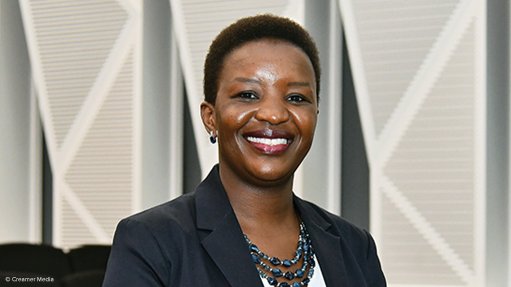
Business Leadership South Africa CEO Busi Mavuso
Photo by: Donna Slater
Business Leadership South Africa CEO Busi Mavuso cautions that while business owners, leaders and CEOs may criticise government for maladministration, it ought to be remembered that government is a large and complex organisation with over two-million employees and a budget of R1.8-trillion.
“That makes for a vastly complicated institution that is going to present all kinds of management problems,” she says, adding that, although the business sector is far larger in terms of people and money, it is divided into companies that are individually smaller and more manageable.
“. . . it is easy for us in business to criticise, given our own experience of running institutions,” says Mavuso, acknowledging that the human resources and financial management challenges of government are massive.
She adds that, while being a CEO is “no walk in the park”, especially when they must compete in a dynamic market, which is unlike the civil service, at least CEOs can maintain a tight focus and act decisively when needed.
Mavuso notes that, in contrast, President Cyril Ramaphosa must manage multiple complex stakeholders and a vast organisation. “It is like turning an oil tanker while you have fires on board, and you only have your job for five years before political forces can turn against you.”
“I was reminded of this when reading the auditor-general’s report last week . . . it shows a modest improvement in the culture of accountability in the public sector,” she says. Auditor-General Tsakani Maluleke noted that irregular expenditure among national and provincial government departments had decreased to R54-billion from R66-billion in the previous year.
Further, she points out that some provinces, like Limpopo, showed a marked improvement, while others like the Free State deteriorated. “Overall, though, the trend is in the right direction.”
This, Mavuso says, should be viewed as a return of accountability, to some degree, across the public sector. “It reflects the impact of the President’s efforts to shift compliance levels across the country.”
Relatedly, she says Ramaphosa is making progress in another major area of deterioration under former President Jacob Zuma – the capacity and skills levels in the public sector.
“The exodus of skilled people from the public sector has been devastating, leaving institutions from municipalities to national government departments without the skills or competence to implement projects or provide services.”
INFRASTRUCTURE
Mavuso says that, while poor audit outcomes are one consequence, another is the collapse in infrastructure investment in the public sector as the engineers and project management skills do not exist. “Citizens feel it in the weak public services provided.”
However, at the same time, she highlights that Cabinet has approved the National Implementation Framework towards the Professionalisation of the Public Service, with the draft framework open for public consultation.
“The framework has many elements to it, from how civil servants are recruited to their development and retention,” says Mavuso.
The objective of the framework is to depoliticise the civil service and insulate it from party politics, while driving accountability and competence. It recommends more rigorous recruitment processes for directors-general and deputy directors-general, with independent experts used in the recruitment and interviewing processes, ensuring higher quality in key management positions, she says.
“These human resources and financial management improvements should be applauded. But in the meantime the serious capacity constraints in government have to be managed,” states Mavuso.